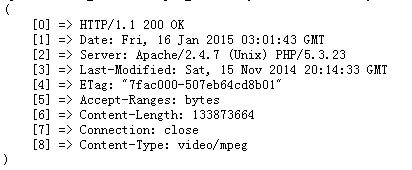- 【K8s】专题十六(3):Kubernetes 包管理工具之 Helm 语法
行者Sun1989
Kuberneteskubernetes容器云原生Helm
本文内容均来自个人笔记并重新梳理,如有错误欢迎指正!如果对您有帮助,烦请点赞、关注、转发、订阅专栏!专栏订阅入口|精选文章|Kubernetes|Docker|Linux|羊毛资源|工具推荐|往期精彩文章【Docker】(全网首发)KylinV10下MySQL容器内存占用异常的解决方法【Docker】(全网首发)KylinV10下MySQL容器内存占用异常的解决方法(续)【K8s】专题十六(2):
- 对称二叉树 二叉树的最大深度 二叉树的最小深度
默默修炼的小趴菜
算法数据结构
1.给定一个二叉树,检查它是否是镜像对称的。#includeusingnamespacestd;structTreeNode{intval;TreeNode*left;TreeNode*right;TreeNode(intx){val=x;left=NULL;right=NULL;}};boolcompare(TreeNode*left,TreeNode*right){if(left==NULL&
- 计算机二级备考
.ccl
c++算法开发语言
1.头文件和命名空间#include//包含标准输入输出流库,用于使用cout和cin进行控制台输入输出。#include//包含数学库,这里虽然代码中未直接使用,但可能后续扩展会用到相关数学函数。#include//包含文件流库,用于文件的读写操作。#include//包含字符串库,用于处理字符串类型的数据。usingnamespacestd;//使用标准命名空间,这样可以直接使用标准库中的类和
- 什么是vue的keep-alive?它是如何实现的?具体缓存了什么内容?
北辰alk
vue前端vue.js缓存spring
文章目录一、`keep-alive`的核心作用二、实现原理1.缓存管理策略2.核心源码解析(Vue2.x简化版)3.缓存生命周期三、缓存的具体内容1.缓存对象结构2.具体缓存内容四、使用示例1.基础用法2.配置缓存策略五、注意事项六、实现流程图解Vue的keep-alive是一个内置组件,用于缓存不活动的组件实例,避免重复渲染,从而优化应用性能。它常用于需要保留组件状态或避免重复加载的场景(如标签
- Linux技术学习分享- 使用 LNMP 架构部署动态网站环境【5.4】
BinaryStarXin
Linux技术学习分享【1】linux学习运维搭建Discuz论坛选购服务器主机配置Windows客户端配置Linux客户端
20.3搭建Discuz!论坛为了检验LNMP动态网站环境是否配置妥当,可以使用在上面部署Discuz!系统,然后查看结果。如果能够在LNMP动态网站环境中成功安装使用Discuz!论坛系统,也就意味着这套架构是可用的。Discuz!X3.2是国内最常见的社区论坛系统,在经过十多年的研发后已经成为了全球成熟度最高、覆盖率最广的论坛网站系统之一。Discuz!X3.2软件包的后缀是.zip格式,因此
- Deep Lake:人工智能时代的数据湖
开源项目精选
人工智能
DeepLake是一款由Activeloop开发的开源深度学习数据湖,旨在解决深度学习数据管理的挑战。它提供高效的多模态数据管理、类似Git的版本控制、强大的查询和可视化功能,并与MLOps生态系统无缝集成,助你轻松驾驭海量数据,加速模型训练!Stars数8,458Forks数652主要特点多模态数据支持:支持图像、视频、音频、文本、点云等各种数据类型。张量存储:以深度学习框架友好的张量格式存储数
- 重磅推出!Highlight.io:开源全栈监控平台,让开发者轻松掌控应用性能!
开源项目精选
全栈
Highlight.io是一个开源的全栈监控平台,提供用于错误监控、会话重放、日志记录、分布式跟踪等的综合工具。它旨在为开发人员提供用于监控应用程序的现代、有凝聚力的解决方案。Stars数8,029Forks数398主要特点错误跟踪:借助详细的堆栈跟踪、错误上下文和受影响用户信息,即时捕获并诊断错误。会话回放:通过像素级精确重现会话,可视化用户交互,帮助你快速理解和复现问题。性能监控:通过加载时间
- 【Linux】-Pve下的Nginx安装
前鼻音太阳熊
Linuxlinuxnginx运维
linuxpve系统安装nginxpve系统和普通系统的区别核心定位与功能差异PVE:是专为虚拟化场景设计的Linux发行版,内置KVM虚拟机和LXC容器管理功能,提供统一的Web界面及集群管理能力,支持高可用性、虚拟机迁移等企业级特性23。普通Linux:作为通用操作系统,需通过手动安装KVM、Docker等工具实现虚拟化/容器化功能,缺乏原生的集中式虚拟化平台管理界面67。系
- 蓝桥杯省赛真题C++B组2024-握手问题
.ccl
蓝桥杯c++算法
一、题目【问题描述】小蓝组织了一场算法交流会议,总共有50人参加了本次会议。在会议上,大家进行了握手交流。按照惯例他们每个人都要与除自己以外的其他所有人进行一次握手(且仅有一次)。但有7个人,这7人彼此之间没有进行握手(但这7人与除这7人以外的所有人进行了握手)。请问这些人之间一共进行了多少次握手?注意A和B握手的同时也意味着B和A握手了,所以算作是一次握手。二、思路方法一:对于这种题,我一般是来
- 怎么测试代理IP的速度?如何解决电脑设置代理掉线问题?
xinxinhenmeihao
tcp/ip网络协议代理IP
如何测试代理IP的速度测试代理IP的速度可以通过以下几种方法进行:使用在线代理测试工具:有许多在线服务提供代理IP的速度测试,如ProxyBench、HideMy.name等。这些工具通常会自动检测代理IP的响应时间、下载速度等指标。手动测试:配置浏览器或系统使用代理IP。访问速度测试网站,如Speedtest.net,进行速度测试。比较使用代理前后的速度差异。编写脚本测试:使用编程语言(如Pyt
- Go语言开发常见问题
徐福记c
java开发语言
1.Go的协程和线程的区别概念不同:协程是比线程更轻量级的执行单元,由程序库管理,而线程是操作系统调度的执行单元。调度方式不同:协程的调度由程序自行控制,线程的调度由操作系统控制。内存占用不同:协程的栈大小可动态调整,初始栈很小,内存占用低;线程的栈大小固定,通常较大,内存占用高。并发能力不同:Go语言中可轻松创建数十万甚至上百万个协程,而线程因内存和系统资源限制,创建过多线程会导致性能问题。2.
- IP代理服务器如何判断代理已经连通?
xinxinhenmeihao
tcp/ip网络协议网络代理模式
IP代理服务器服务器是否已经连通,可以通过几种不同的方法来进行测试。以下是几种常用的方法:1.Ping测试:打开命令提示符(Windows)或终端(Mac/Linux)。输入ping[代理服务器IP]命令。如果返回了成功的响应(如“Replyfrom[IP地址]”),则说明代理服务器在网络层面上是可达的。但请注意,ping测试通过ICMP协议进行,而代理服务器可能只监听HTTP或HTTPS等应用层
- 使用 OkHttp 与 FastJSON 发送 POST 请求
李少兄
Javaokhttpjava
目录前言一、依赖配置Maven依赖配置Gradle依赖配置二、常量定义三、学生对象定义四、常规情况:发送单个学生信息代码实现代码解释五、多线程情况:发送多个学生信息线程池基础知识代码实现代码解释六、注意事项和优化建议常规情况异步请求处理多线程情况前言在现代Java开发中,与外部服务进行数据交互是极为常见的需求。其中,发送HTTPPOST请求以提交数据更是屡见不鲜。OkHttp作为一款高效且功能强大
- 访问网页时403forbidden是什么意思
踏过山河,踏过海
全栈-前端github服务器运维
访问网页时403forbidden是什么意思场景--一台电脑在网页登录or登出多个账号所以说,访问网页时403forbidden到底是什么意思场景–一台电脑在网页登录or登出多个账号今天遇到了一个访问网页时403forbidden的场景:场景1我打开了一个网站的登录系统,我要继续访问的话,就需要登录账号,现在我有三个账号,于是我打开了三个网页,分别登录这三个账号.登录第一个账号,没啥问题.当我在第
- Self-Attention 中的 Q / K / V
有人给我介绍对象吗
文献阅读专栏深度学习
Self-Attention中的Q/K/V没问题!你能继续追问就说明真的在思考了我再用一个更形象、生活化的类比来讲一下Self-Attention中的Q/K/V,你一定能懂。✅更生动的类比:课堂里学生讨论问题想象一个场景:你在教室里,四个学生正在讨论一个问题,每个人都在听别人说话,同时思考谁讲的内容最值得我听。每个学生都扮演三个角色:含义角色说明Q(Query)我在“主动”问:谁对我来说重要?K(
- 远程控制与数据分析:工业中台助力港口起重机智能化
钡铼技术物联网关
linux边缘计算
在现代化港口运营中,起重机作为核心设备,其运行效率和安全性直接影响到整个港口的吞吐能力和经济效益。然而,传统的起重机监控方式往往依赖于人工巡检和定期维护,不仅效率低下,而且难以实时掌握设备状态。随着工业物联网(IIoT)技术的快速发展,工业物联中台(IndustrialIoTPlatform)应运而生,为港口起重机的远程监控提供了全新的解决方案。工业物联中台,简称“工业中台”,是一种集数据采集、处
- 嵌入式系统概述
weixin_48707198
嵌入式
1.1嵌入式系统概述·嵌入式系统的定义嵌入式系统是以应用为中心、以计算机技术为基础、软件硬件可剪裁、适应于对系统功能、可靠性、成本、体积、功耗等有严格要求的专用计算机系统。这个定义主要包含两个信息,一是嵌入式系统是专用计算机系统,因此必须要有处理器,具备计算机系统的基本特征。二是嵌入式系统的功能是有严格要求并按照指定的应用而设计的。123·嵌入式系统应用领域根据嵌入式系统的应用领域有交通管理、工控
- appium入坑必备--详解uiautomator2,让你摆脱usb_appium uiautomator2
weixin_45933550
appiumjavapython
APP元素定位+基本工具介绍万字详解基本操作uc-devtools与Airtest工具使用目录UiAutomatorUiautomator2环境搭建常用操作连接设备Wifi连接USB连接定位工具定位元素启动应用停止应用查包名定位方式ResourceId定位Text定位Description定位ClassName定位xpath定位坐标定位重复元素定位截图文件推送与拉取常用鼠标操作滑动屏幕解锁屏幕获取
- y7000p+Ubuntu20.04新机开荒(能无障碍正常使用)
梆梆就是两拳
ubuntulinux
1.先制作启动盘(软碟通制作)2.将原Ubuntu系统完全卸载:开机时疯狂F2进入bios,将开机选项中windows调到第一位,否则删除旧的系统盘时再开机,电脑会黑屏不知道进入哪个系统。进入windows,打开磁盘管理,直接删除旧的系统盘(注意不要删除windows盘,EFI,以及自带的一个很小的恢复区,其余的直接删除,变成黑色未分配状态)此时,开机引导文件还是没有删除,开机时还是会显示双系统引
- vue+django 前后端数据同步
weixin_44079503
djangovue.jspython
目标:在views.py中,准备好数据后,通过Vue的v-model双向绑定功能在index.html中显示。当数据修改后,点击按钮提交后,以对象的形式向views.py传递并更新后端数据。总体思路:views.py用字典存数据暴露api的get方法,在页面加载时双向绑定数据修改数据提交后,点按钮把数据对象用json字符串传过来用simplejson.loads还原对象后,更新字典值步骤:准备数据
- 深入解析AI PPT实现原理及用到的人工智能技术
码上飞扬
AIGC人工智能powerpointAIPPT
一、引言随着人工智能技术的飞速发展,AI在各个领域的应用越来越广泛。其中,AIPPT(自动生成演示文稿)作为一项新兴技术,正逐渐改变人们制作演示文稿的方式。本文将深入解析AIPPT的实现原理,并探讨其中用到的人工智能技术。二、AIPPT的实现原理AIPPT的实现原理是一个复杂且多步骤的过程,涉及从内容理解到最终演示文稿生成的全流程。以下是每个步骤的详细解析:1.内容理解与分析内容理解与分析是AIP
- PyTorch深度学习框架进阶学习计划 - 第21天:自然语言处理基础
凡人的AI工具箱
深度学习pytorch学习人工智能AI编程AIGC自然语言处理
PyTorch深度学习框架进阶学习计划-第21天自然语言处理基础今天我们将深入学习自然语言处理(NLP)的基础概念,重点关注词嵌入技术、序列建模原理以及主流模型之间的区别和优缺点。通过理解这些基础知识,你将能够更好地应用PyTorch构建NLP应用。1.词嵌入原理与实现词嵌入(WordEmbeddings)是NLP中的核心概念,它将单词映射到连续向量空间,使得语义相似的词在向量空间中距离较近。为什
- 深入探索 Kubernetes StatefulSet:管理有状态服务的最佳实践
XMYX-0
K8Skubernetes容器云原生
文章目录深入探索KubernetesStatefulSet:管理有状态服务的最佳实践引言背景介绍为什么选择StatefulSetStatefulSet基础知识什么是StatefulSet有状态与无状态的区别StatefulSet的核心特性稳定的Pod标识有序部署与终止有序更新机制存储管理StatefulSet架构详解HeadlessService的作用PersistentVolumeClaim(P
- PyTorch深度学习框架60天进阶学习计划 - 第19天:时间序列预测
凡人的AI工具箱
深度学习pytorch学习人工智能AI编程迁移学习python
PyTorch深度学习框架60天进阶学习计划-第19天:时间序列预测目录时间序列预测概述滑动窗口数据构造方法归一化策略对比:MinMaxvsZ-ScoreLSTM基础原理Attention机制与LSTM结合LSTM-Attention模型实现TeacherForcing技术与应用Prophet基准模型对比多步预测的滚动验证方法综合实战:股票价格预测1.时间序列预测概述时间序列预测是机器学习中的一个
- python写自动答题脚本_编写Python脚本拉取优学院答案
weixin_39609354
python写自动答题脚本
上个月审计了云班课和优学院的前端代码,实现了强制修改视频进度和获取选择题答案的功能。但是单个发包效率太低了,昨晚开始着手写了一个脚本,早上修改了一下,基本功能写出来了。考虑到风险,这个脚本是获取答案,不自动答题。4.29追加:应要求,对脚本进行了更新。0x00脚本的核心部分就是一个获取答案的接口,通过传递题目的questionid,可以查询到对应的答案。细节部分主要是维持会话,保留站点的cooki
- hive 数字转换字符串_Hive架构及Hive SQL的执行流程解读
weixin_39756416
hive数字转换字符串
1、Hive产生背景MapReduce编程的不便性HDFS上的文件缺少Schema(表名,名称,ID等,为数据库对象的集合)2、Hive是什么Hive的使用场景是什么?基于Hadoop做一些数据清洗啊(ETL)、报表啊、数据分析可以将结构化的数据文件映射为一张数据库表,并提供类SQL查询功能。Hive是SQL解析引擎,它将SQL语句转译成M/RJob然后在Hadoop执行。由Facebook开源,
- python爬虫网络中断_如何解决Python爬虫中的网络掉线问题?
weixin_39767645
python爬虫网络中断
在学校里的时候,除了上课,还有一大幸福的事情,就是用着学校的网线网络。当然玩的时候很开心,就是没事关键词时刻掉链子。时不时地网络掉线让人非常恼火,什么团战在梦游啊,看剧卡住不动了,相信能引起很多小伙伴的共鸣。所以,为了大家的快乐,小编找到了一个解决办法,分享给大家。以山东大学网络为例,别的话不多说,直接上程序__author__='CQC'#-*-coding:utf-8-*-importurll
- python监听adb端口_Python脚本利用adb进行手机控制的方法
Melania Shen
python监听adb端口
一.adb相关命令:1.关闭adb服务:adbkill-server2.启动adb服务adbstart-server3.查询当前运行的所有设备adbdevices4.可能在adb中存在多个虚拟设备运行可以指定虚拟设备运行-s虚拟设备名称5.重启设备adbreboot--指定虚拟设备adb-s设备名称reboot6.查看日志adblogcat清除日志adblogcat-c7.进入linuxshell
- python监听adb指令_python 监控logcat关键字功能
金牛远望号
python监听adb指令
本文主要介绍使用Python调用ADB命令实现实时监控logcat关键字的功能采用多进程,可同时监控多个设备,监控多个关键字。需要配置ADB环境,具体配置就不多介绍,随便搜一下一大把,直接上代码通过一个全局变量控制开启和关闭监控功能,INSTRUCTION用于根据指令获取对应的方法名监控关键字主函数,通过subprocess.Popen创建进程执行命令,持续输出日志到stdout获取所有已连接设备
- 代码随想录算法训练营day2| 209.长度最小的子数组|59.螺旋矩阵II|区间和|开发商购买土地
70ng
算法矩阵线性代数leetcodejava
209.长度最小的子数组找出该数组中满足其总和大于等于target的长度最小的子数组[numsl,numsl+1,...,numsr-1,numsr],并返回其长度**。**如果不存在符合条件的子数组,返回0。classSolution{publicintminSubArrayLen(inttarget,int[]nums){intfast=0;//快指针intslow=0;//慢指针intsum
- sql统计相同项个数并按名次显示
朱辉辉33
javaoracle
现在有如下这样一个表:
A表
ID Name time
------------------------------
0001 aaa 2006-11-18
0002 ccc 2006-11-18
0003 eee 2006-11-18
0004 aaa 2006-11-18
0005 eee 2006-11-18
0004 aaa 2006-11-18
0002 ccc 20
- Android+Jquery Mobile学习系列-目录
白糖_
JQuery Mobile
最近在研究学习基于Android的移动应用开发,准备给家里人做一个应用程序用用。向公司手机移动团队咨询了下,觉得使用Android的WebView上手最快,因为WebView等于是一个内置浏览器,可以基于html页面开发,不用去学习Android自带的七七八八的控件。然后加上Jquery mobile的样式渲染和事件等,就能非常方便的做动态应用了。
从现在起,往后一段时间,我打算
- 如何给线程池命名
daysinsun
线程池
在系统运行后,在线程快照里总是看到线程池的名字为pool-xx,这样导致很不好定位,怎么给线程池一个有意义的名字呢。参照ThreadPoolExecutor类的ThreadFactory,自己实现ThreadFactory接口,重写newThread方法即可。参考代码如下:
public class Named
- IE 中"HTML Parsing Error:Unable to modify the parent container element before the
周凡杨
html解析errorreadyState
错误: IE 中"HTML Parsing Error:Unable to modify the parent container element before the child element is closed"
现象: 同事之间几个IE 测试情况下,有的报这个错,有的不报。经查询资料后,可归纳以下原因。
- java上传
g21121
java
我们在做web项目中通常会遇到上传文件的情况,用struts等框架的会直接用的自带的标签和组件,今天说的是利用servlet来完成上传。
我们这里利用到commons-fileupload组件,相关jar包可以取apache官网下载:http://commons.apache.org/
下面是servlet的代码:
//定义一个磁盘文件工厂
DiskFileItemFactory fact
- SpringMVC配置学习
510888780
springmvc
spring MVC配置详解
现在主流的Web MVC框架除了Struts这个主力 外,其次就是Spring MVC了,因此这也是作为一名程序员需要掌握的主流框架,框架选择多了,应对多变的需求和业务时,可实行的方案自然就多了。不过要想灵活运用Spring MVC来应对大多数的Web开发,就必须要掌握它的配置及原理。
一、Spring MVC环境搭建:(Spring 2.5.6 + Hi
- spring mvc-jfreeChart 柱图(1)
布衣凌宇
jfreechart
第一步:下载jfreeChart包,注意是jfreeChart文件lib目录下的,jcommon-1.0.23.jar和jfreechart-1.0.19.jar两个包即可;
第二步:配置web.xml;
web.xml代码如下
<servlet>
<servlet-name>jfreechart</servlet-nam
- 我的spring学习笔记13-容器扩展点之PropertyPlaceholderConfigurer
aijuans
Spring3
PropertyPlaceholderConfigurer是个bean工厂后置处理器的实现,也就是BeanFactoryPostProcessor接口的一个实现。关于BeanFactoryPostProcessor和BeanPostProcessor类似。我会在其他地方介绍。PropertyPlaceholderConfigurer可以将上下文(配置文件)中的属性值放在另一个单独的标准java P
- java 线程池使用 Runnable&Callable&Future
antlove
javathreadRunnablecallablefuture
1. 创建线程池
ExecutorService executorService = Executors.newCachedThreadPool();
2. 执行一次线程,调用Runnable接口实现
Future<?> future = executorService.submit(new DefaultRunnable());
System.out.prin
- XML语法元素结构的总结
百合不是茶
xml树结构
1.XML介绍1969年 gml (主要目的是要在不同的机器进行通信的数据规范)1985年 sgml standard generralized markup language1993年 html(www网)1998年 xml extensible markup language
- 改变eclipse编码格式
bijian1013
eclipse编码格式
1.改变整个工作空间的编码格式
改变整个工作空间的编码格式,这样以后新建的文件也是新设置的编码格式。
Eclipse->window->preferences->General->workspace-
- javascript中return的设计缺陷
bijian1013
JavaScriptAngularJS
代码1:
<script>
var gisService = (function(window)
{
return
{
name:function ()
{
alert(1);
}
};
})(this);
gisService.name();
&l
- 【持久化框架MyBatis3八】Spring集成MyBatis3
bit1129
Mybatis3
pom.xml配置
Maven的pom中主要包括:
MyBatis
MyBatis-Spring
Spring
MySQL-Connector-Java
Druid
applicationContext.xml配置
<?xml version="1.0" encoding="UTF-8"?>
&
- java web项目启动时自动加载自定义properties文件
bitray
javaWeb监听器相对路径
创建一个类
public class ContextInitListener implements ServletContextListener
使得该类成为一个监听器。用于监听整个容器生命周期的,主要是初始化和销毁的。
类创建后要在web.xml配置文件中增加一个简单的监听器配置,即刚才我们定义的类。
<listener>
<des
- 用nginx区分文件大小做出不同响应
ronin47
昨晚和前21v的同事聊天,说到我离职后一些技术上的更新。其中有个给某大客户(游戏下载类)的特殊需求设计,因为文件大小差距很大——估计是大版本和补丁的区别——又走的是同一个域名,而squid在响应比较大的文件时,尤其是初次下载的时候,性能比较差,所以拆成两组服务器,squid服务于较小的文件,通过pull方式从peer层获取,nginx服务于较大的文件,通过push方式由peer层分发同步。外部发布
- java-67-扑克牌的顺子.从扑克牌中随机抽5张牌,判断是不是一个顺子,即这5张牌是不是连续的.2-10为数字本身,A为1,J为11,Q为12,K为13,而大
bylijinnan
java
package com.ljn.base;
import java.util.Arrays;
import java.util.Random;
public class ContinuousPoker {
/**
* Q67 扑克牌的顺子 从扑克牌中随机抽5张牌,判断是不是一个顺子,即这5张牌是不是连续的。
* 2-10为数字本身,A为1,J为1
- 翟鸿燊老师语录
ccii
翟鸿燊
一、国学应用智慧TAT之亮剑精神A
1. 角色就是人格
就像你一回家的时候,你一进屋里面,你已经是儿子,是姑娘啦,给老爸老妈倒怀水吧,你还觉得你是老总呢?还拿派呢?就像今天一样,你们往这儿一坐,你们之间是什么,同学,是朋友。
还有下属最忌讳的就是领导向他询问情况的时候,什么我不知道,我不清楚,该你知道的你凭什么不知道
- [光速与宇宙]进行光速飞行的一些问题
comsci
问题
在人类整体进入宇宙时代,即将开展深空宇宙探索之前,我有几个猜想想告诉大家
仅仅是猜想。。。未经官方证实
1:要在宇宙中进行光速飞行,必须首先获得宇宙中的航行通行证,而这个航行通行证并不是我们平常认为的那种带钢印的证书,是什么呢? 下面我来告诉
- oracle undo解析
cwqcwqmax9
oracle
oracle undo解析2012-09-24 09:02:01 我来说两句 作者:虫师收藏 我要投稿
Undo是干嘛用的? &nb
- java中各种集合的详细介绍
dashuaifu
java集合
一,java中各种集合的关系图 Collection 接口的接口 对象的集合 ├ List 子接口 &n
- 卸载windows服务的方法
dcj3sjt126com
windowsservice
卸载Windows服务的方法
在Windows中,有一类程序称为服务,在操作系统内核加载完成后就开始加载。这里程序往往运行在操作系统的底层,因此资源占用比较大、执行效率比较高,比较有代表性的就是杀毒软件。但是一旦因为特殊原因不能正确卸载这些程序了,其加载在Windows内的服务就不容易删除了。即便是删除注册表中的相 应项目,虽然不启动了,但是系统中仍然存在此项服务,只是没有加载而已。如果安装其他
- Warning: The Copy Bundle Resources build phase contains this target's Info.plist
dcj3sjt126com
iosxcode
http://developer.apple.com/iphone/library/qa/qa2009/qa1649.html
Excerpt:
You are getting this warning because you probably added your Info.plist file to your Copy Bundle
- 2014之C++学习笔记(一)
Etwo
C++EtwoEtwoiterator迭代器
已经有很长一段时间没有写博客了,可能大家已经淡忘了Etwo这个人的存在,这一年多以来,本人从事了AS的相关开发工作,但最近一段时间,AS在天朝的没落,相信有很多码农也都清楚,现在的页游基本上达到饱和,手机上的游戏基本被unity3D与cocos占据,AS基本没有容身之处。so。。。最近我并不打算直接转型
- js跨越获取数据问题记录
haifengwuch
jsonpjsonAjax
js的跨越问题,普通的ajax无法获取服务器返回的值。
第一种解决方案,通过getson,后台配合方式,实现。
Java后台代码:
protected void doPost(HttpServletRequest req, HttpServletResponse resp)
throws ServletException, IOException {
String ca
- 蓝色jQuery导航条
ini
JavaScripthtmljqueryWebhtml5
效果体验:http://keleyi.com/keleyi/phtml/jqtexiao/39.htmHTML文件代码:
<!DOCTYPE html>
<html xmlns="http://www.w3.org/1999/xhtml">
<head>
<title>jQuery鼠标悬停上下滑动导航条 - 柯乐义<
- linux部署jdk,tomcat,mysql
kerryg
jdktomcatlinuxmysql
1、安装java环境jdk:
一般系统都会默认自带的JDK,但是不太好用,都会卸载了,然后重新安装。
1.1)、卸载:
(rpm -qa :查询已经安装哪些软件包;
rmp -q 软件包:查询指定包是否已
- DOMContentLoaded VS onload VS onreadystatechange
mutongwu
jqueryjs
1. DOMContentLoaded 在页面html、script、style加载完毕即可触发,无需等待所有资源(image/iframe)加载完毕。(IE9+)
2. onload是最早支持的事件,要求所有资源加载完毕触发。
3. onreadystatechange 开始在IE引入,后来其它浏览器也有一定的实现。涉及以下 document , applet, embed, fra
- sql批量插入数据
qifeifei
批量插入
hi,
自己在做工程的时候,遇到批量插入数据的数据修复场景。我的思路是在插入前准备一个临时表,临时表的整理就看当时的选择条件了,临时表就是要插入的数据集,最后再批量插入到数据库中。
WITH tempT AS (
SELECT
item_id AS combo_id,
item_id,
now() AS create_date
FROM
a
- log4j打印日志文件 如何实现相对路径到 项目工程下
thinkfreer
Weblog4j应用服务器日志
最近为了实现统计一个网站的访问量,记录用户的登录信息,以方便站长实时了解自己网站的访问情况,选择了Apache 的log4j,但是在选择相对路径那块 卡主了,X度了好多方法(其实大多都是一样的内用,还一个字都不差的),都没有能解决问题,无奈搞了2天终于解决了,与大家分享一下
需求:
用户登录该网站时,把用户的登录名,ip,时间。统计到一个txt文档里,以方便其他系统调用此txt。项目名
- linux下mysql-5.6.23.tar.gz安装与配置
笑我痴狂
mysqllinuxunix
1.卸载系统默认的mysql
[root@localhost ~]# rpm -qa | grep mysql
mysql-libs-5.1.66-2.el6_3.x86_64
mysql-devel-5.1.66-2.el6_3.x86_64
mysql-5.1.66-2.el6_3.x86_64
[root@localhost ~]# rpm -e mysql-libs-5.1
